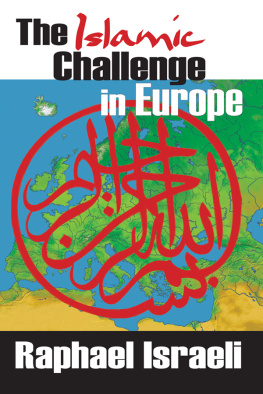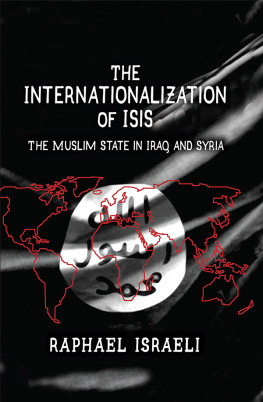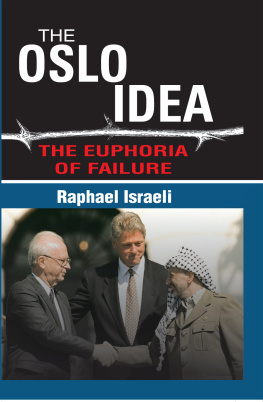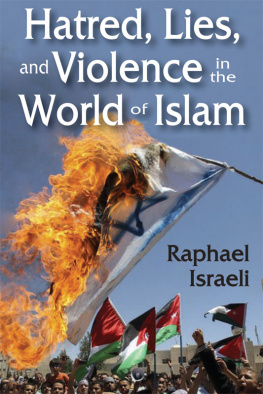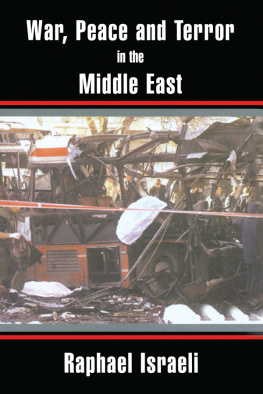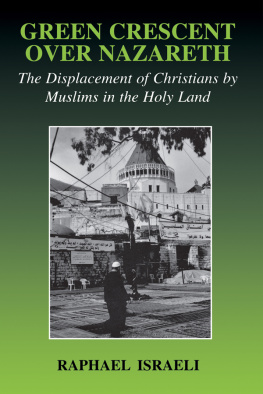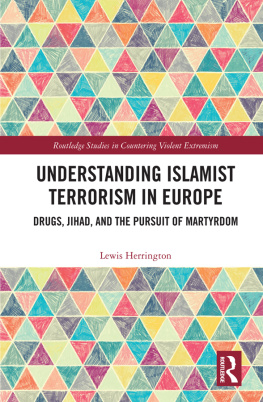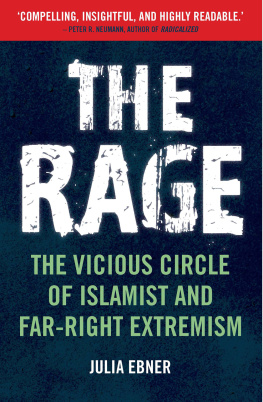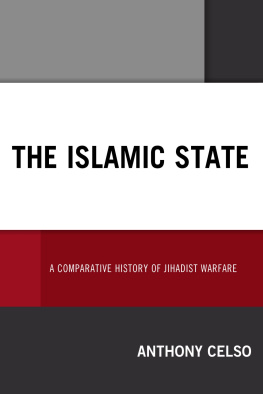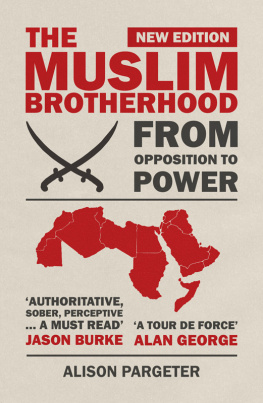This volume is a sequel to this authors Islamikaze1 where this very term was first coined and the ideological and organizational setting was laid out for the 11 September 2001 events and their aftermath. Since then, mainly due to the extraordinary security measures adopted by the United States, which were much maligned by those whose acts of terror had caused the tightening of security in the first place, not one more significant terrorist event has occurred on U.S. soil, at least for now. Conversely, European allies of the United States, including some of those who reneged on their alliance and elected to cut deals with the terrorists, have become the immediate and repetitive victims thereof. But this volume will not deal with the already well-established and deeply entrenched Islam in the Big Three of Europe (Britain, France, and Germany) where its demographic impact amounting to millions (three, six, and three million respectively) has irretrievably altered the social and political make-up of those countries. Islam in those countries has been massively dealt with in other works and monographs, and it will be referred to occasionally only as a matter of comparison with other concentrations of Islam in Europe. Here we shall be concerned with the lesser agglomerations of Islam in clusters of European countries, such as Southern and Central Europe, BENELUX, Scandinavia and the Balkans where Muslim communities, though proportionately high (3 to 6% of the total population), do not amount nevertheless as yet to the many millions that render them critical masses likely to dramatically turn around the politics, the internal security and the domestic welfare, of those countries. Islam had penetrated Europe and the West since the Middle Ages, first during the invasion by the Arabs in the eighth century from the south, when they conquered Spain, Portugal and half of France, before they retreated after the Charles Martel victory in 732 near Poitiers/Tours, and the eight centuries of Muslim rule in Andalusia that ended with their final retreat from Granada in 1492 under the relentless advance of the Spanish reconquista. The second invasion by the Ottomans from the East, led to the fall of Constantinople into their hands and went as far as the gates of Vienna before it was arrested and thwarted in 1683. Ultimately, the break up of the Ottoman Empire during World War I put an end to that long occupation, the residues of which can still be seen in todays Bosnia, Albania, Kosovo, and Macedonia. The current third penetration is done by immigration, and the demographic inundation of Europe, together with a campaign of dawa (religious propaganda) to help spread Islam, aided by a terrorist wave trying to intimidate the West.
International terrorism has not been limited to the confines of the Islamist struggle against the West in the international arena, but has expanded into the domestic scene of Islamic countries where local Islamist oppositions aspire to seize power from current illegitimate rulers supported by the West. This is the genesis of the Bali, Casablanca, Istanbul, Sinai, Amman, Ryad and Jedda acts of terror that were primarily directed against visiting aliens after 11 September, in order to destroy the economic base tourism had with some of those hated regimes. More ominously, many a homegrown Islamist, who was allowed to sow lethal propaganda in Western democracies where he had initially sought asylum from oppression in his land of origin, has used his familiarity with his adoptive land to turn it into his object of terror. This is the background for 11 September and then the Madrid (March 2004) and London (July 2005) horrors.
For too long had the world accepted the Palestinian hijackings of the 1970s and 1980s as a natural calamity which initiated this era of international terrorism. Instead of fighting against them and uprooting them, Western governments and passengers accepted with staggering docility to be stripped at airports and searched, to have their otherwise sacrosanct privacy encroached upon and trampled upon in public, to pay ever- increasing air fares in order to cover security costs, and to repeat the mantra that a solution to the Palestinian conflict will resolve the problem. America has reversed itself and resolved to fight only after the events of 11 September 2001. Madrid elected to yield to the terrorists demands. London changed the rules only after it was rocked by a series of attacks on its public transportation. Other countries have yet to follow.
The public debate was turned on its head after the van Gogh murder in the Netherlands in 2004 and then the anti-Denmark outburst of Muslim rage in the Cartoon Affair of early 2006. Previously, far from recognizing that the fight against terrorism in Iraq, Afghanistan and worldwide was launched by the United States as a defensive measure after it was attacked on its home territory, Americas detractors in Europe and the Muslim world claimed, on the contrary, that it was the American offensive moves in those countries which prompted terrorism, exactly as it was Israels injustices towards the Palestinians that had triggered terrorism in the first place. Cause and effect were reversed. So, instead of joining the United States in its universal struggle against terrorism, and thus also rid themselves of its menace, they blamed the violence on American and Israeli policies, thus unwittingly becoming its unwilling accomplices and its unsuspecting next victims. However, the Cartoon Affair of early 2006 has dramatically demonstrated that the general Muslim wrath against the West and Israel had just been compressed for years due to the measures taken by Muslim governments who were afraid of American retribution. It is also likely that the wrath was contained when Muslims were confident that their presence in the West constituted a critical mass, numerous enough to instill fear of potential civil disorder in the European governments. The fear from American retribution, which was brought to bear in Afghanistan and Iraq, may have been somewhat mitigated by Americas proven constraint to absorb the atrocious behavior of Syria, Saudi Arabia, Iran, and Egypt just like during the havoc of the 1973 oil price rise. In that regard one might say that the Arabs are constantly testing the limits of what America will tolerate, but they are also aware that America turns a blind eye to misdemeanors in order to secure the uninterrupted oil flow. Thus America (and other Western countries for that matter) are seen to favor totalitarian rulers in the Middle East, fearful of the regimes that may replace themthe devil they know approach. No American President wishes to be responsible for creating another Iran, after the ignominious behavior of Carter

